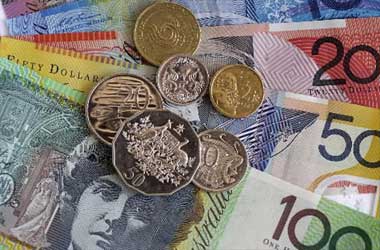 The Aussie rallied against the greenback despite the data published by the Ai Group indicated a steep fall in the Australian Performance of Construction Index.
The Aussie rallied against the greenback despite the data published by the Ai Group indicated a steep fall in the Australian Performance of Construction Index.
Likewise, the composite and services PMI (purchasing managers’ index) also recorded a historical low reading.
At the time of writing this article, the AUD/USD pair has gained from 0.6417 to a high of 0.6454.
The Performance of Construction Index, reported by the Ai Group Australia, plunged to 21.6 in April, from 37.9 in the earlier month.
The figure represented the 20th consecutive month of shrinking and indicating the poll’s slimmest month since the series began in 2005, as both fresh orders (-19.7 vs 15.7) and activity (-21.1 against 18) components plunged, while employment also dropped (-10.8 compared with 25.6) as Covid-19 pandemic hurt the economic activity.
All sectors contracted and their corresponding index measures fell below 40 points, with apartments’ and commercial index declining to 22.1 and 24.5.
Ai Group Head of Policy, Peter Burn, said “The worst hit sectors were apartment building and commercial construction. House building took a tumble and engineering construction, while only down slightly in March, has never recorded a weaker performance than for April.”
In other news, the services PMI data published by Commonwealth Bank fell to19.5 in April, from 38.5 in the prior month, and a notch lower than the preliminary reading of 19.60.
The reported figures mirror the sharpest contraction in the services industry since series began, as the Covid-19 outbreak caused cancellation of meetings, business shutdowns and worries about social get-together.
Fresh export orders fell significantly as shutdowns affected imports. While employment dropped for the third successive month. Additionally, input costs declined for the first-time in the four-year poll on lower fuel costs and wages.
Similarly, Composite PMI for Australia plummeted to 21.7 in April 2020, from 39.4 in the earlier month, and slightly down from the preliminary reading of 22.40.
The reading reflected the steepest shinking of the private sector the organizations started publishing the series amidst the Covid-19 outbreak as both the factory activity PMI (45.6 compared with 49.7 in March) and services PMI (19.5 vs 38.50 in March) contracted at the quickest rate on record.
Fresh orders declined steeply due to poor domestic and overseas demand and unemployment rate expedited to a historical high mainly due to company shutdowns and lockdowns.
Both input and output prices fell. Going forward, confidence hit the lowest in the series, amidst a weak sentiment in the manufacturing Industry.
The Australian share market opened on a slight positive note Tuesday, in line with gains in Wall Street as investors started concentrating on the reopening of the country’s economy. In this regard, California Gov.
Gavin Newsom stated that a few of the retail vendors could resume their business with changes as prescribed. In the meanwhile, investors look forward to interest rate decision of the Reserve Bank of Australia later today.
WTI crude rallied over $21 per barrel for the first time in two weeks, bolstered by expectations of a quick rebound in fuel demand as lockdown related prohibitions stipulated to restrict coronavirus are being relaxed.
Brent crude appreciated for the sixth consecutive session to trade at roughly $27 per barrel in Asian trading session, amid anticipations that an increase in worldwide demand will pave way for the recovery of crude oil.
The number of Covid-19 cases across the globe exceeded 3.5 million. So far 250k plus people have lost their lives and 1.10 million have recovered. In the US, the number of confirmed cases crossed 1.21 million, with 69.921 people losing lives.




